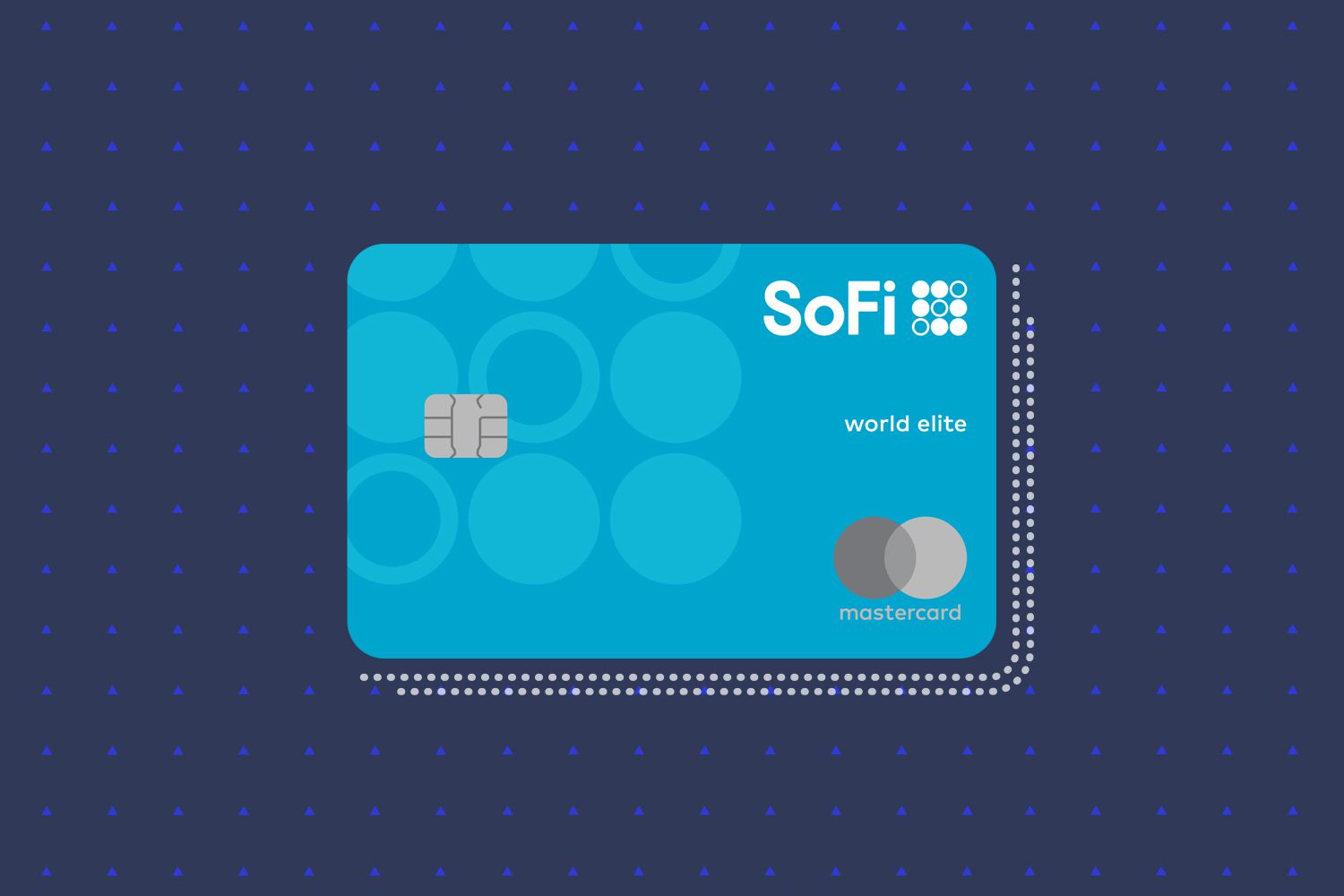Home>Finance>What Credit Bureau Does Synchrony Bank Pull From


Finance
What Credit Bureau Does Synchrony Bank Pull From
Modified: March 3, 2024
Find out which credit bureau Synchrony Bank pulls from and how it can impact your finance.
(Many of the links in this article redirect to a specific reviewed product. Your purchase of these products through affiliate links helps to generate commission for LiveWell, at no extra cost. Learn more)
Table of Contents
Introduction
Welcome to the world of credit and finance! In today’s financial landscape, having a good credit score is essential for various purposes such as obtaining loans, credit cards, mortgages, and even renting an apartment. When it comes to managing our finances, it’s important to be aware of the factors that can impact our creditworthiness.
In this article, we’ll focus on one particular aspect: the credit bureau used by Synchrony Bank. Synchrony Bank is a well-known institution that provides credit cards, store cards, and financing options for retailers across the United States. Whether you’re considering applying for a Synchrony Bank credit card or you already have one, understanding the credit bureau they use can help you manage your credit effectively.
Before diving into the specifics, let’s first get a brief overview of what Synchrony Bank is and why credit bureaus play a crucial role in the evaluation of our creditworthiness.
What is Synchrony Bank?
Synchrony Bank is a consumer financial services company that offers a variety of banking products, including credit cards, store cards, and private label credit cards. Formerly known as GE Capital Retail Bank, it operates as a subsidiary of Synchrony Financial and has been providing financial services for more than 85 years.
As one of the largest providers of private label credit cards in the United States, Synchrony Bank partners with numerous retail stores and businesses to offer credit options to their customers. Some of the well-known brands associated with Synchrony Bank include Amazon, Walmart, Lowe’s, Gap, and many more.
One of the key advantages of obtaining a credit card through Synchrony Bank is that they often provide special financing offers and rewards programs, which can be particularly beneficial for frequent shoppers. Synchrony Bank’s credit products are designed to make it easier for consumers to manage their purchases and payments, while also building their credit history.
Now that we have a better understanding of what Synchrony Bank offers, let’s take a closer look at the role of credit bureaus in the evaluation of our creditworthiness.
Overview of Credit Bureaus
Credit bureaus, also known as credit reporting agencies, are companies that collect and maintain consumer credit information. They gather data from various sources, such as banks, lenders, credit card companies, and other financial institutions, to create credit reports for individuals. These reports contain information about an individual’s credit history, including their payment history, credit utilization, outstanding debts, and public records like bankruptcies or liens.
There are three main credit bureaus in the United States: Equifax, Experian, and TransUnion. Each credit bureau has its own methods and algorithms for calculating credit scores based on the information they collect. These credit scores provide a snapshot of an individual’s creditworthiness and are used by lenders to determine the risk associated with extending credit.
It’s important to note that while the information collected by credit bureaus is similar, there can be slight variations between the credit reports generated by each bureau. This is because creditors might report information to one or more of the bureaus, and not all lenders report to all three.
By regularly checking your credit reports from each bureau, you can ensure that the information is accurate and up to date. It also allows you to identify any potential errors or fraudulent activity that could negatively impact your credit score.
Understanding the role of credit bureaus and the information they collect is essential when it comes to managing your credit. Now, let’s find out which credit bureau Synchrony Bank uses for evaluating creditworthiness.
Credit Bureau Used by Synchrony Bank
When it comes to assessing an applicant’s creditworthiness, Synchrony Bank primarily relies on information provided by the credit bureau TransUnion. TransUnion is one of the leading credit reporting agencies in the United States and is known for providing accurate and reliable credit information.
By partnering with TransUnion, Synchrony Bank can access detailed credit reports and credit scores to evaluate an individual’s financial history and determine their creditworthiness. The information gathered by TransUnion includes payment history, outstanding debts, credit utilization, public records, and other relevant data that helps lenders make informed decisions.
It’s important to note that while Synchrony Bank mainly uses TransUnion, there may be instances where they also consider information from other credit bureaus like Equifax or Experian. This allows for a more comprehensive evaluation of an individual’s credit profile, as different creditors may report to different bureaus.
By utilizing credit information from TransUnion and potentially other credit bureaus, Synchrony Bank ensures that they have a comprehensive understanding of an applicant’s credit history. This enables them to make fair and accurate assessments of creditworthiness, ultimately determining the terms and conditions of the credit card or financing options offered.
Now that we know which credit bureau Synchrony Bank primarily uses, let’s explore the factors that Synchrony Bank considers when evaluating credit applications.
Factors Considered by Synchrony Bank for Credit Evaluation
When evaluating credit applications, Synchrony Bank takes several factors into consideration to assess an individual’s creditworthiness. These factors help them gauge the risk associated with extending credit and determine the terms and conditions of the credit card or financing options offered. Here are some of the key factors that Synchrony Bank considers:
- Credit Score: Synchrony Bank takes a close look at an applicant’s credit score, which is a numerical representation of their creditworthiness. A higher credit score indicates a strong credit history and a lower risk of default.
- Payment History: Synchrony Bank evaluates an applicant’s payment history to determine if they have consistently made payments on time. A track record of timely payments demonstrates responsible financial behavior.
- Credit Utilization: The amount of credit an individual uses in proportion to their total available credit is known as credit utilization. Synchrony Bank assesses an applicant’s credit utilization rate, as a high utilization rate may indicate a higher risk of default.
- Debt-to-Income Ratio: Synchrony Bank also considers an individual’s debt-to-income ratio, which is the percentage of their monthly income that goes towards paying debts. A lower debt-to-income ratio indicates a lower risk of default.
- Length of Credit History: The length of an individual’s credit history is another important factor considered by Synchrony Bank. A longer credit history can provide more insight into an individual’s financial behavior and helps establish their creditworthiness.
- Recent Credit Inquiries: Synchrony Bank also takes into account the number of recent credit inquiries made by an applicant. Multiple inquiries within a short period may suggest a higher risk of overextension.
By analyzing these factors, Synchrony Bank can make informed decisions about extending credit and determining the terms and conditions offered to applicants. It’s important to keep these factors in mind and strive to maintain a good credit profile when considering applying for a Synchrony Bank credit card or financing option.
Now that we have a better understanding of the factors Synchrony Bank considers, let’s explore how you can check your credit report to ensure its accuracy.
How to Check Your Credit Report
Monitoring your credit report regularly is essential for maintaining good financial health and ensuring the accuracy of your credit information. Here’s a step-by-step guide on how to check your credit report:
- Request a Free Credit Report: Under the Fair Credit Reporting Act (FCRA), you are entitled to a free credit report from each of the three major credit bureaus (Equifax, Experian, and TransUnion) every 12 months. To request your free credit report, visit AnnualCreditReport.com, the only authorized website for free credit reports.
- Provide Required Information: On the AnnualCreditReport.com website, you’ll need to provide your personal information, including your name, address, date of birth, and social security number.
- Select Credit Bureau: Choose which credit bureau’s report you want to view. You can select one at a time or request reports from all three bureaus.
- Verify Identity: To verify your identity, you may be asked a series of multiple-choice questions based on your credit history, such as previous addresses or loan information.
- Review Your Credit Report: Once your identity is confirmed, you’ll have access to your credit report. Carefully review the information provided, including account details, payment history, and any discrepancies or errors.
- Dispute Inaccurate Information: If you find any inaccuracies or errors in your credit report, you have the right to dispute them. Contact the credit bureau in question and provide the necessary documentation to support your claim. The credit bureau will investigate and update your report accordingly if necessary.
- Monitor Your Credit Regularly: Make it a habit to check your credit report on a regular basis. Monitoring your credit can help you identify any fraudulent activity or errors that could negatively impact your credit score.
By checking your credit report periodically, you can ensure the accuracy of the information being reported and take appropriate actions to maintain a good credit profile.
Now, let’s conclude with a final thought.
Conclusion
Understanding the credit bureau used by Synchrony Bank and the factors they consider for credit evaluation is crucial for managing your finances effectively. By partnering with TransUnion, Synchrony Bank obtains comprehensive credit information to assess an individual’s creditworthiness and determine the terms and conditions of their credit cards and financing options.
It’s important to remember that credit bureaus play a significant role in shaping our financial lives, as they collect and maintain our credit information. Keeping a close eye on your credit report, checking for accuracy, and promptly addressing any errors or inaccuracies is essential for maintaining a healthy credit profile.
By monitoring your credit regularly and understanding the factors considered by Synchrony Bank, you can take proactive steps to improve your creditworthiness over time. This includes maintaining a good payment history, managing your credit utilization, and minimizing your debt-to-income ratio.
Remember, your creditworthiness goes beyond obtaining credit from Synchrony Bank alone. It impacts your ability to secure loans, obtain favorable interest rates, and even rent an apartment. Therefore, it’s crucial to take a holistic approach to managing your finances and establishing a solid credit foundation.
By staying informed and being proactive in managing your credit, you can make informed financial decisions, build a strong credit profile, and achieve your financial goals. Whether you’re considering a Synchrony Bank credit card or already have one, prioritize responsible credit behavior, and regularly check your credit report to maintain a healthy financial future.
Now that you have a better understanding of the credit bureau used by Synchrony Bank and the factors they consider, you can confidently navigate the world of credit and make informed decisions. Remember, good financial habits and responsible credit management can go a long way in securing your financial well-being.














